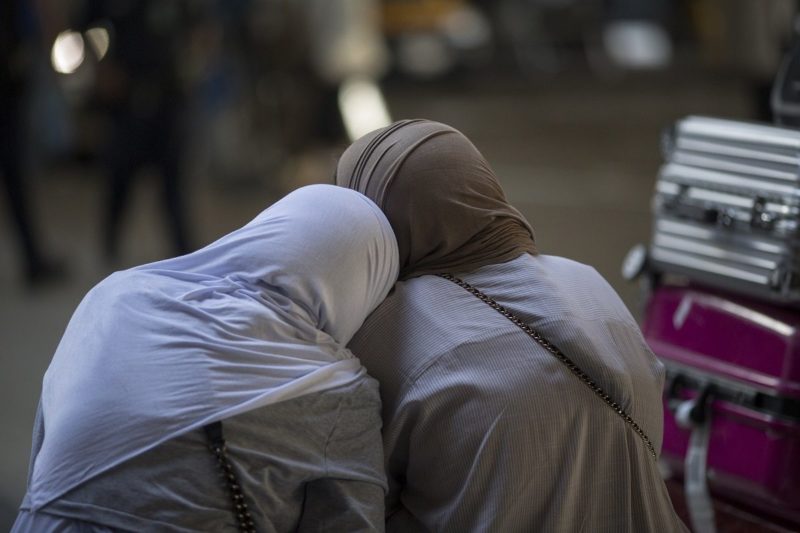Trump’s Latest Travel Restrictions Are ‘Still a Muslim Ban’ (Updated)
“The administration is once again making cosmetic adjustments to the Muslim ban in hopes that it will pass the barest possible definition of anything else; but they’ve failed again.”

UPDATE, October 17, 4:15 p.m.: The president’s latest travel ban, which was set to go into effect Wednesday morning, was blocked by a federal judge in Hawaii on Tuesday afternoon. The ruling is expected to be appealed. Early Wednesday morning, a second judge blocked the latest travel ban, holding that President Trump’s statements made clear that it unconstitutionally targeted Muslims.
President Trump has added three nations to the five previously named to his Muslim travel ban list—Chad, North Korea, and Venezuela. The expansion of the travel ban came Sunday night as the executive order he signed in March expired.
Starting October 18, the new order indefinitely bars citizens of these nations, as well as those from Iran, Libya, Somalia, Syria, and Yemen, to travel to the United States, and is more far-reaching than the last iteration, the New York Times reported. Those already in the U.S. with valid visas will not be affected.
Sudan falling off the latest list and the addition of two countries that do not have a majority-Muslim population—North Korea and Venezuela—is seen an attempt to counteract the backlash Trump faced for issuing travel restrictions on the basis of religion.
Courts have ruled against Trump’s efforts to ban travelers from Muslim-majority nations and the U.S. Supreme Court is set to hear arguments in October on the last order.
Civil rights groups, which condemned the travel bans as unconstitutional and an effort to deliver on a campaign promise to prevent Muslims from entering the country, criticized the president’s latest effort.
“Six of President Trump’s targeted countries are Muslim. The fact that Trump has added North Korea—with few visitors to the U.S.—and a few government officials from Venezuela doesn’t obfuscate the real fact that the administration’s order is still a Muslim ban,” said Anthony D. Romero, the executive director of the American Civil Liberties Union, which challenged the previous ban, along with some partner organizations.
“No matter how many times the administration tries to repackage and sell it, President Trump’s Muslim travel ban remains hateful, discriminatory, and xenophobic,” Vanita Gupta, president and CEO of The Leadership Conference on Civil and Human Rights, said in a statement. “While Trump continues to try and fulfill his campaign promise to ban Muslims, this latest version will continue to harm families and degrade our values.”
“The vast majority of the executive order is completely unchanged,” said Johnathan Smith, legal director of Muslim Advocates, a national advocacy group. “The administration is once again making cosmetic adjustments to the Muslim ban in hopes that it will pass the barest possible definition of anything else; but they’ve failed again.”
Council on American-Islamic Relations National Executive Director Nihad Awad said in a statement that Trump’s agenda and political goals have remained unchanged despite tweaking his administration’s Muslim ban.
“Ten months after his election, instead of promoting the values that lifted up this nation, Donald Trump is still trying to divide Americans,” Awad said. “These hard truths must now be faced by all Americans, who—as individuals—need to decide if they are on the side of traditional American aspirations of religious and racial inclusion, or if they envision a ‘Trump’ America in which members of only one group dominate and reap the benefits of citizenship.”
